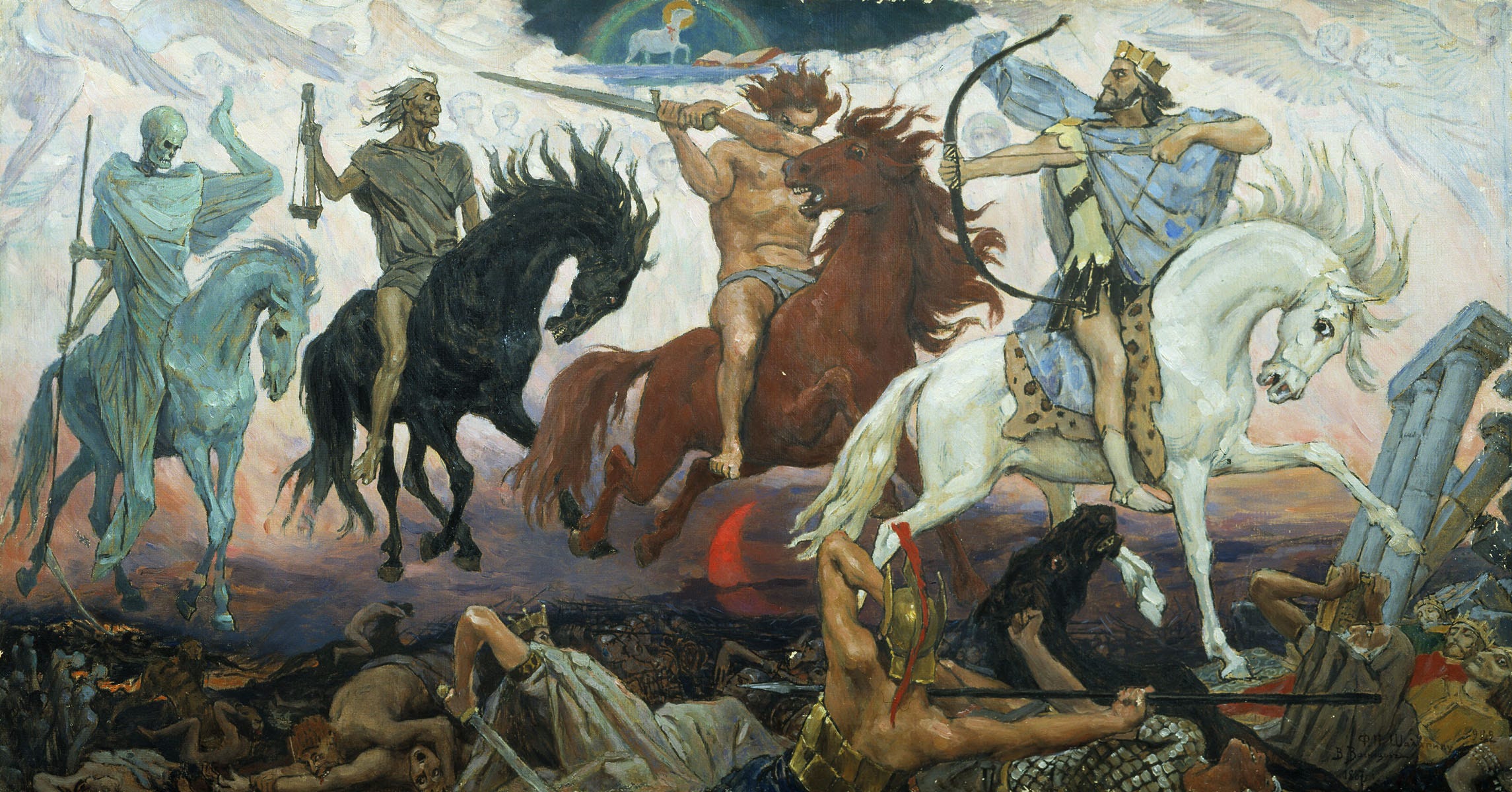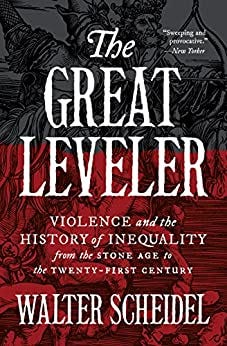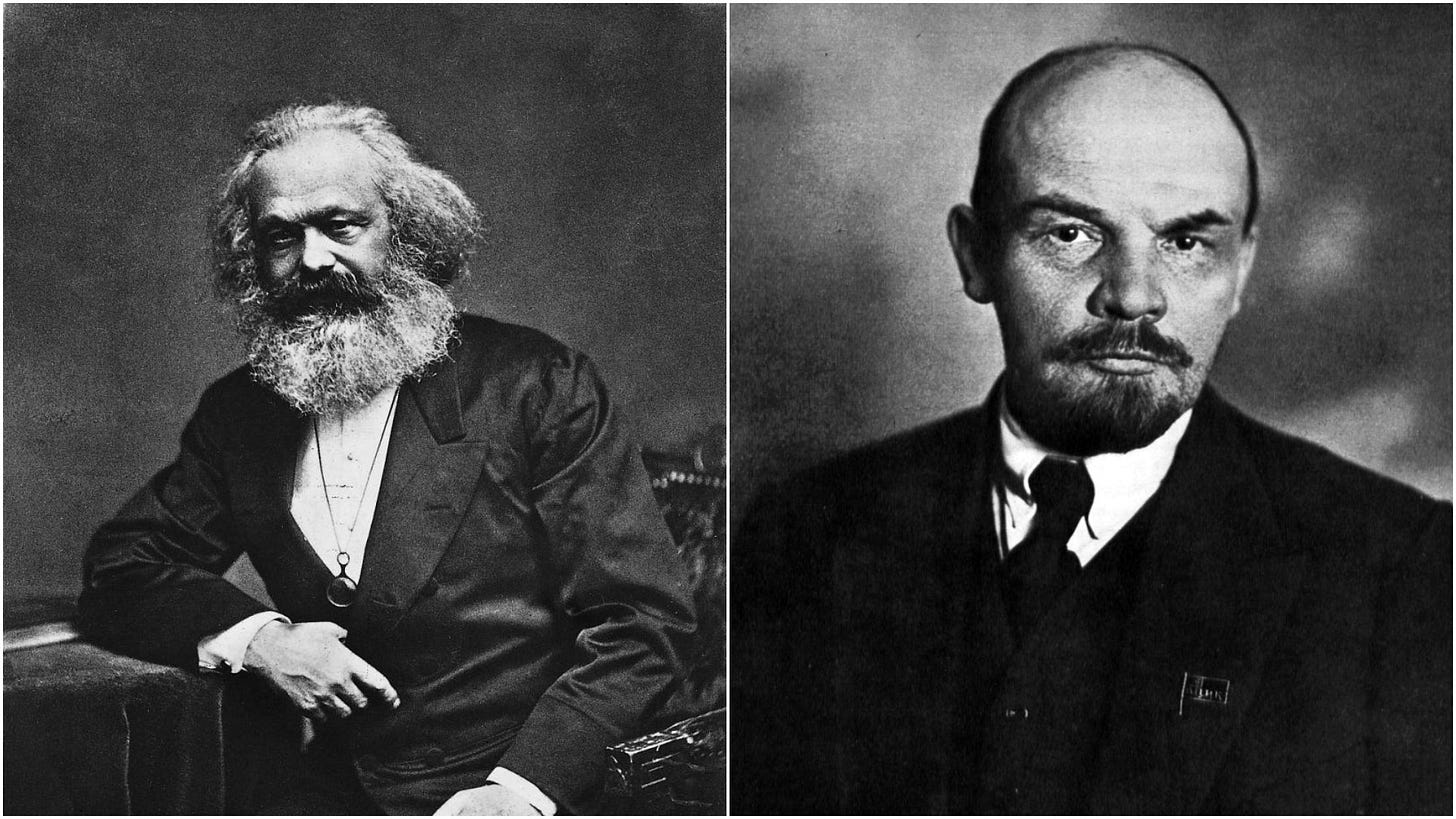Why achieving Equality is an Impossible Dream
And why the quest for Equality will cause far more harm than good.
Make someone’s day: Gift a subscription to your friends and family!
For over 200 years one of the main goals of the political Left has been achieving some sort of equality. I am going to write more on the concept of equality in other articles, but the concept is really quite complex, and people who use the term often fail to define what type of equality they are referring to.
Equality is simply too vague of a concept to have any true meaning. Equality of what? Equality of height? Equality of athletic ability? Equality of intelligence? Equality of vision acuity? Equality of cell phones?
Obviously, I am joking above, but it illustrates a very important point. I know that few people are trying to achieve those types of equality, so I will mention just a few that are commonly sought types of equality:
Equality of Outcome (typically on income, wealth, or material goods)
Equality of Opportunity (government policy and corporate hiring applying the same rules to all citizens)
Political equality (all adults having one vote, the same constitutional rights, and the judicial system treating all persons the same)
Moral equality (all persons are equal in the eyes of God)
Social equality (treating all persons with the same courtesy and respect, regardless of their social status)
In this article, I will focus on Equality of Outcome as measured by inequality of income and wealth. Much of the material from this article comes from Walter Scheidel’s “The Great Leveler: Violence and the History of Inequality from the Stone Age to the Twenty-first Century”
Walter Scheidel is one of the leading historians in the field of Ancient History, so he is not affiliated with the political Left or Right. Scheidel uses the latest quantitative data to measure inequality across the last 10,000 years.
Scheidel then looks at:
General trends in inequality of income and wealth across time.
Interruptions in the general trend that either leads to greater equality or greater inequality than the trend.
Events or government policies that may explain the interruptions (for better or worse)
See more articles on Upward Mobility:
Why achieving Equality is an Impossible Dream (this article)
Why Progress and Upward Mobility should be the goal, not Equality
Note: I will also publish a large number of excerpts on Substack from my forthcoming book: Upward Mobility: A Radical New Agenda to Uplift the Poor and Working Class. These excerpts are only available to paid subscribers.
Other books in my “From Poverty to Progress” book series:
Quick summary of Scheidel’s book
If you are interested in the topic, I would recommend reading a summary of this book in my library of online book summaries. Below I will summarize his main points:
Ever since the invention of agriculture, human societies have been very unequal.
The typical pre-Industrial society had a:
tiny, but extremely wealthy, elite
larger group of relatively prosperous government, church, and military officials
huge mass of peasants living at subsistence levels.
Modern societies have much higher standards-of-living, but similar levels of inequality.
Periods of relative stability inherently lead to increasing inequality.
The only periods with declining inequality have been marked by what Scheidel calls “The Four Horsemen of the Apocalypse”:
Total wars, such as World War I and II
Revolutionary violence, particularly from Communist regimes
Complete collapse of the state, such as the collapse of the Western Roman empire and numerous collapses of Chinese imperial dynasties.
Lethal pandemics, such as the Black Death
Even most wars, civil wars, and peasant revolts have had no real impact on inequality. It is only the most extreme that did so.
Peaceful attempts to lessen equality have had little long-term impact, including:
Land reform
Democracy
Public Education and skills building
Redistributive taxation
Social spending
So what do we make of this?
My interpretation of Walter Scheidel’s book is:
Inequality is here to stay. Everything that reduces inequality substantially is worse than inequality. Government policies that attempt to reduce inequality have very little long-term effect, though they are sometimes very popular.
So let’s just move on from trying to create Equality of Outcome and try to do something else.
Our two options
Assuming Walter Scheidel is correct, and I think that he is, we have two choices:
Option #1: High levels of inequality that gradually increase over time.
Option #2: Deliberately provoking one or more of the following:
World War III, which would likely lead to the death of tens, if not hundreds, of millions of people. Let’s call this the National Socialist solution to inequality.
A violent revolution to establish a Soviet-like Totalitarian state that rules by terror and genocide. Let’s call this the Communist solution to inequality.
Deliberately collapsing governments, which likely leads to civil war which kills millions, and then eventually leads to the establishment of a different government. Let’s call this the Anarchist solution to inequality.
Lethal pandemics, which we “tried” recently, but I guess that it did not kill enough people to establish greater equality. Let’s call this the Bio-medical solution to inequality.
All four “solutions” within Option #2 are pretty horrifying. I have zero doubt that a small minority of people would still choose Option #2. The history of the 20th Century is full of examples.
I think any reasonable person would choose Option #1, however reluctantly. The only difference is between:
Those who openly acknowledge that Option #1 is better than Equality of Outcome, and
Those who keep pretending that they can achieve Equality of Outcome by peaceful means.
Now, of course, this does not mean that all the attempts to create Equality of Outcome via peaceful means are entirely bad. Some of the government programs that I mentioned above bring material benefits to society. Providing education for children benefits society even if it does not make our society substantially more equal. Providing a pension and health care for the elderly also benefits society even if those benefits are overwhelmingly concentrated among persons over the age of 65.
It does mean that we should be honest with ourselves as to how much choosing option #1 can achieve. We should openly acknowledge the following:
We cannot achieve anything like Equality of Outcome, nor is it even clear that government social programs can get us very far in that direction
With each tax dollar spent we are making trade-offs with other important societal goals
The potential negative incentives that government social programs can impose on those who can least afford them.
Other goals might produce far better results (which I will discuss in the next article).
So are we all doomed to immiseration?
So if all peaceful societies are doomed to increasing inequality, does that mean that we as individuals are doomed to immiseration? This is more or less what Karl Marx argued in the mid-19th Century. His theories had an enormous impact on the 20th Century.
Karl Marx believed that the very nature of capitalism made the following inevitable:
The bourgeoisie (factory owners) would gradually concentrate into a very few, very rich factory owners.
The proletariat (factory workers) would expand in numbers and their incomes would decline.
This would create a highly polarized two-class society with:
a very small, but rich, bourgeoisie and
everyone else being members of a huge, but increasingly poor, proletariat
This proletariat would achieve class consciousness. The proletariat would perceive a common unity with all other members of the proletariat in all nations and in opposition to the bourgeoisie in all nations.
The result would be an international revolution of the proletariat against the bourgeoisie.
The proletariat would overthrow the bourgeoisie and establish a “dictatorship of the proletariat.” Marx never defined how this form of government would work in any real detail.
Marx believed, however, that this dictatorship of the proletariat would take control over the means of production (i.e. all factories and businesses) and then run the economy efficiently and scientifically without the need for private ownership or private profit.
As the contradictions within capitalism were overcome by scientific management, the need for government would recede and the dictatorship of the proletariat would gradually wither away.
Note that Karl Marx never strove for Equality of Outcome. He just believed that it was the natural outcome of overthrowing capitalism and establishing a new economy without private ownership or private profit.
But it is very clear that Karl Marx and his supporters believed Equality of Outcome was a very good thing, and that it was impossible under capitalism. Indeed, Karl Marx’s theory is by far the most thought-out means that the Left has developed to establish Equality of Outcome. All other ideologies on the Left seem vague in comparison to Marxism.
The history of Marxism after Marx died is a gradual splitting of the ways between two dominant wings of the Socialist movement:
Social Democrats, who saw that the immiseration of the proletariat did not happen, so it was better to work within Liberal Democratic Capitalism via social reform and trade union activity.
In other words, they chose Option #1, which, as Scheidel shows, failed to achieve the desired level of equality. Over time, Social Democrats completely dropped Marxist ideology and became reformists similar to the American Democratic party.Communists, who also saw that the proletariat was not achieving a revolutionary consciousness and instead increasingly supported Social Democratic trade unions.
Vladimir Lenin decided that the answer to Marx’s incorrect prediction was to form a Vanguard of committed full-time revolutionaries to establish a one-party Totalitarian state ruled by terror. Lenin and the Communists wanted to rule in the name of the proletariat instead of Marx’s rule by the proletariat.
In other words, Lenins and the Communists chose Option #2. The big split came in 1917 when Lenin’s Bolsheviks seized power in Russia, and the entire Socialist movement split into two camps in almost every nation.
It is important to note, that while Lenin, Stalin, Mao, and other Communists were able to create far greater levels of income and wealth equality, they substituted an inequality based on rank within the Communist party. In practice, one’s rank in the Communist party determined one’s income, power, and social status. Josef Stalin, for example, had as much control over material wealth as the wealthiest capitalist in the 1940s. So realistically, the Communists just substituted one form of inequality for another form of inequality.
Why Equality of Outcome is impossible to achieve
Equality of Outcome is impossible to achieve because of the inherent diversity of humans:
Individual humans are genetically different from each other. This gives individuals differences in both abilities and preferences. These differences will lead a person to make different choices, which will lead to different outcomes in life.
Individual humans have different childhood experiences, which affect their adulthood in a myriad of different ways.
Individual humans are raised in different family structures (married, single parent, adoption, etc), and those differing family structures lead to different life outcomes.
Regardless of genetics or childhood, individual humans still have differing levels of intelligence, desire to work hard, ability to plan for the long-term, and amount of self-discipline. Those all lead to different outcomes in life.
Individual humans have different preferences, so even in the exact same environment, they will make different choices. These choices will lead to different outcomes in life.
Individual humans are born into different geographies, each with levels of material progress. This is true for nations, regions, cities, and neighborhoods.
Individual humans are of different ages, and this leads to different abilities and preferences.
Nations have different sub-cultures, which lead to different preferences. Those different preferences will lead to people making different choices. Those choices will lead to different outcomes in life. Culture also affects different outcomes between nations.
Most importantly, all the characteristics that enable some individuals to achieve better life outcomes are beneficial to society. We should want to keep those characteristics and spread them as widely as possible, not destroy them in a quest for Equality.
The Quest for Equality destroys everything
Fundamentally, those who seek Equality of Outcome are at war with human nature and Progress. They do not see that poverty, ignorance, and violence are the natural state of humanity. It is only after hundreds of thousands of years of Cultural Evolution and later Progress that we have been able to exit this state.
Poverty is normal; Progress is not normal.
Progress comes from the daily efforts of societies that have achieved the Five Keys to Progress. Societies that have evolved progress have found mechanisms to channel the most talented in career paths where they can make the most contributions to society. In return, those same mechanisms reward those who contribute the most with a higher level of income and social status.
I disagree with the “Great man” theory of history, but the “Everyone makes equal contributions” theory of history is even worse. Especially talented persons, overwhelmingly white males, have contributed to humanity with their talents. The knowledge, skills, and values of those talented men come from a blend of genetics, upbringing, and cultural inheritance from previous generations.
Egalitarians simply do not know how to create people like that. Nor do egalitarians know how to restructure society to put those men into the best possible position to contribute to society. Nor do governments know how to build a vast, decentralized network of regular, everyday people whom the most talented need to prosper.
Egalitarians only know how to tear people down and punish the successful for making contributions to society. The result is the opposite of what we should be aiming for, but it is the only possible outcome when one makes Equality of Outcome the primary goal for society.
Simply put, it is much, much easier to tear down the rich than it is to build up the poor. So the real choice is not between Equality and Inequality. The real choice is between Inequality with Progress and Inequality with Poverty (unless we can figure out a way to get back to Hunter Gatherer societies and even then genetic inequalities will remain)
The alternatives: Progress and Upward Mobility
In my next article in this series, I will explain why I believe the goals of Progress and Upward Mobility are far superior to Equality of Outcome.
Why achieving Equality is an Impossible Dream (this article)
Why Progress and Upward Mobility should be the goal, not Equality
Note: I will also publish a large number of excerpts on Substack from my forthcoming book: Upward Mobility: A Radical New Agenda to Uplift the Poor and Working Class. These excerpts are only available to paid subscribers.
Other books in my “From Poverty to Progress” book series:








Not sure how I found this article but it came up in my research and I did it find it somewhat interesting. Your criticisms of Socialism and Communism are fair in regards to how they go about achieving and ensuring equality, but, I have an issue with your implicit presentation of Capitalism as the more correct choice. Even your Options have this implication; either accept increasing levels of inequality or millions will die. I wonder if you have looked through the statistics of the 100's of millions that have died because of Capitalism and this concept of inequality being necessary. Every war that America has initiated, Vietnam, Iraq, Afghanistan, war on drugs and war on terror, are all symptoms of the Capitalist system. (This is not to say that wars and extrajudicial killings in Socialist and Communist countries are ok.) Even the establishment of America was brought about after the killing of more than a 100 million Native Americans; for their land and resources.
At one point you even said that most of the great progress made by humanity was made by overwhelmingly white males, which is ridiculous on it's face. I would implore you to look into the history of the Islamic Empires, which span over a 1000 years and had many facets of modernity while the Europeans were still living in the dark ages. I would implore you to look into the history of how it was the Europeans, white men, that committed barbarity at unprecedented scales, i.e. the Crusades, massacring Native populations, robbing the wealth of the Indus Valley, burning of the Library of Alexandria, not excluding modern day events like the Holocaust and the Gaza Genocide.
I think this would be telling of your bias: was Calculus discovered by Isaac Newton or by Ibn al-Haytham?; was the scientific method formulized during the renaissance or hundreds of years earlier by Muslim scholars in the Great Library in Persia? Capitalism and accepting increasing levels of inequality is not the answer. Socialism and Communism are also not the answer. That does not mean that there is no answer out there. This article exemplifies the mindset of someone that has grown and benefitted in a Capitalist system. The idea that there needs to be a workforce in order for the special humans to lead the charge for progress is nonsensical because of what will happen once we have a robot workforce. The level of inequality will skyrocket and the general population will be left with very little means to secure basic amenities like food and shelter. What you are promoting is a dystopia in which fictions like the Hunger Games, The Purge, Squid Game, etc. will become realities for the people at the bottom and their only means of survival.
You even mentioned how they tried to cull the population through a manufactured pandemic; do you think that is okay? Do you think it's okay that our tax dollars are going to fund more death and destruction rather than funding schools, hospitals and better infrastructure? America is the world's terrorist, there is no doubt about that, it's plain to see. Again, I'm not saying that Socialism, Communism or Anarchism are the perfect answers, but they are all at least better than Capitalism. Healthcare is a clear example. You may be personally well-off so you can afford an emergency trip to the hospital, assuming you live in America, but the average American would not be able to afford it and would go into serious debt; not just because they don't earn enough money, but because the American healthcare system is privatized and only the wealthy can use it effectively. Another easy example is Insulin; the patent was sold for a $1 because it is a necessary life-saving medication and yet one dose of insulin is sold for $100's of dollars in America.
Perfect equality is not possible, but immense inequality is, in fact, it is what we are living through today. The pandemic bankrupted many people and businesses while generating 100's more billionaires. Corporations have record-high profits but continue to increase prices using inflation as a justification. There is genocide taking place in front of the whole world's eyes and our governments are hellbent on defending the perpetrators and not holding them accountable; mostly because they are bought and paid for. Do you really think that there isn't a system of governance that would stop this from happening? We should just accept that we are all slaves to the super elites and "enlightened white men"? You must realize that the contributions of the white man are mostly death and destruction. Even the birthplace of civilization was in Mesopotamia, brown or black people. The center of civilization for hundreds of years was in Baghdad, brown or black people. The Prophet/Messiah of the Christian people was born in Bethlehem, Palestine; a brown or black man.
I will read the rest of the linked articles and even your book but I have to say this: you are promoting, implicitly or explicitly, the convergence of power in the hands of a handful of individuals to control the global population and you're telling the people to either accept it and be slaves or millions will die. This is not the view of someone that has faced inequality. Ask the Palestinians if they are okay with choosing increasingly growing inequality, ask Holocaust survivors, ask the victims of natural disasters who are left to fend for themselves while the "richest and most powerful" country in the world allocates funding to an almost trillion dollar defense/war budget. Ask the veterans that went to fight wars on the behalf of the US and then were abandoned when they returned home and had complications.
I apologize for the length of the comment but you seem to be glossing over a lot of nuance and seem to be pushing a nihilistic view of progress; "if we are slaves and will be subjected to ever increasing levels of inequality, what's the point of living?"
Aleksandr Solzhenitsyn
Human beings are born with different capacities. If they are free, they are not equal. And if they are equal, they are not free.